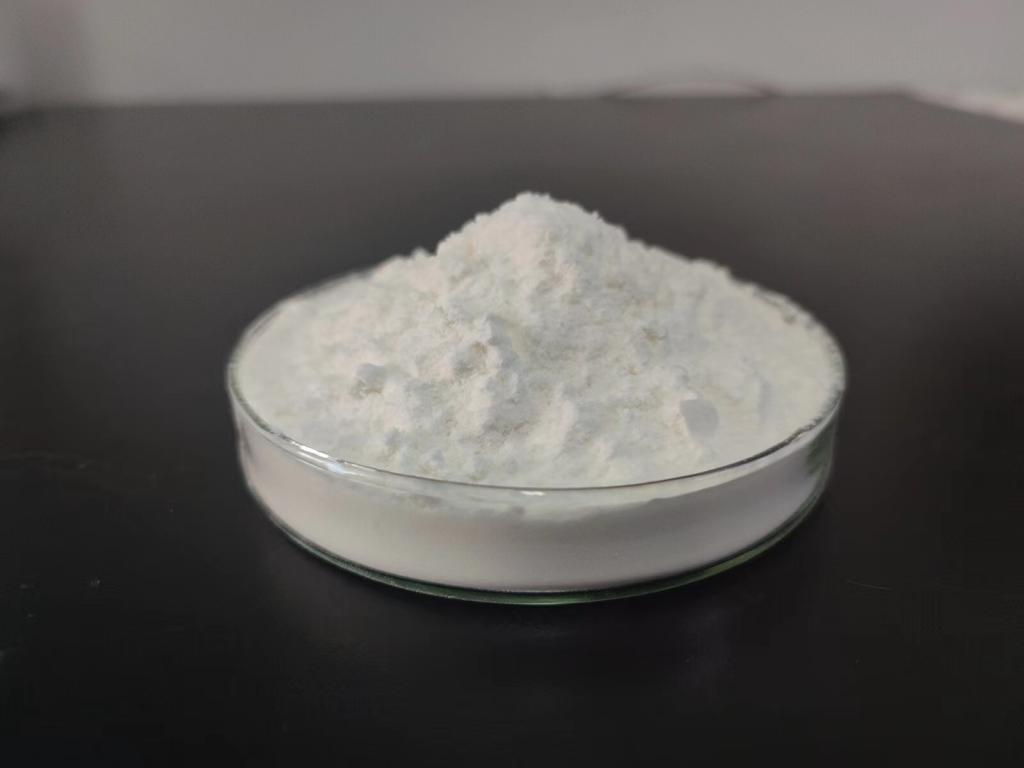Tel:+8618231198596

News
 CONTACT
CONTACT
 CONTACT
CONTACT
- Linkman:Linda Yao
- Tel: +8618231198596
- Email:linda.yao@dcpharma.cn
- Linkman:CHARLES.WANG
- Department:Overseas
- Tel: 0086 0311-85537378 0086 0311-85539701
News
The role of ε-Polylysine hydrochloride in maintaining the quality of pre-packaged smoothies.
TIME:2024-10-12
Understanding ε-Polylysine Hydrochloride
ε-Polylysine is a naturally occurring cationic homopolymer of L-lysine, produced by certain strains of Streptomyces albulus. The hydrochloride form, ε-PL, is highly water-soluble and exhibits broad-spectrum antimicrobial activity against a variety of microorganisms, including Gram-positive bacteria, some Gram-negative bacteria, yeasts, and molds. Its mechanism of action involves disrupting the cell membrane of these microorganisms, leading to leakage of cellular contents and inhibition of growth. Recognized as Generally Recognized As Safe (GRAS) by the U.S. Food and Drug Administration (FDA), ε-PL is approved for use in several countries, including Japan and the United States.
The Need for Quality Maintenance in Pre-Packaged Smoothies
Pre-packaged smoothies are typically made from a blend of fruits, vegetables, and sometimes dairy or plant-based milks, which are rich in nutrients but also prone to microbial growth. These beverages often contain high levels of water, sugars, and other organic compounds that can support the proliferation of spoilage organisms and pathogens. Additionally, the processing and packaging methods used can introduce contamination risks. Ensuring the quality and safety of pre-packaged smoothies requires robust preservation strategies.
Role of ε-PL in Maintaining the Quality of Pre-Packaged Smoothies
ε-PL can play a crucial role in maintaining the quality of pre-packaged smoothies through several key mechanisms:
Microbial Inhibition: The primary function of ε-PL is to inhibit the growth of microorganisms. By incorporating ε-PL into the formulation of pre-packaged smoothies, manufacturers can effectively control the growth of spoilage organisms and pathogens, such as yeast, mold, and certain bacteria. This helps to prevent off-flavors, textural changes, and potential foodborne illnesses.
Extended Shelf Life: ε-PL's antimicrobial properties can significantly extend the shelf life of pre-packaged smoothies. By reducing the rate of microbial growth, ε-PL allows the product to remain fresh and safe for a longer period, which is particularly beneficial for products with a high turnover rate and those distributed over wide geographic areas.
Sensory Quality Preservation: Unlike some synthetic preservatives, ε-PL does not significantly alter the sensory qualities of the smoothie. It maintains the flavor, color, and texture of the beverage, ensuring that the consumer experience remains consistent and enjoyable.
Clean-Label Solution: With an increasing consumer preference for natural and minimally processed foods, ε-PL offers a clean-label alternative to synthetic preservatives. It aligns with the demand for "clean" and "natural" food labels, making it an attractive option for manufacturers looking to meet market trends.
Research Findings and Case Studies
Several studies have demonstrated the efficacy of ε-PL in maintaining the quality of pre-packaged smoothies:
Fruit-Based Smoothies: Research has shown that the addition of ε-PL to fruit-based smoothies can significantly reduce the growth of yeast and mold, which are common causes of spoilage. The study found that ε-PL did not affect the sensory qualities of the smoothies, maintaining their flavor, aroma, and overall acceptability.
Dairy-Containing Smoothies: In dairy-containing smoothies, ε-PL has been effective in inhibiting the growth of lactic acid bacteria and yeasts, which can cause fermentation and spoilage. This is particularly important, as the presence of dairy can increase the risk of microbial growth.
Vegetable-Based Smoothies: For vegetable-based smoothies, which may be more prone to bacterial spoilage, ε-PL has been shown to inhibit the growth of both spoilage and pathogenic bacteria, such as E. coli and Salmonella. This ensures the safety and quality of the product throughout its shelf life.
Challenges and Considerations
While ε-PL holds significant promise, there are several challenges and considerations that need to be addressed:
Regulatory Approval: Although ε-PL is approved for use in several countries, regulatory approval may vary. Manufacturers must ensure compliance with local and international regulations.
Cost and Availability: The cost of ε-PL compared to conventional preservatives and its availability can impact its adoption. Economies of scale and advancements in production methods could help reduce costs over time.
Consumer Perception: Educating consumers about the benefits and safety of ε-PL is important, especially in markets where "clean label" and "natural" claims are highly valued.
Compatibility with Other Ingredients: The interaction between ε-PL and other ingredients in the smoothie, such as proteins, fats, and carbohydrates, should be carefully evaluated to ensure that the preservative's effectiveness is not compromised.
Stability and Shelf Life: The stability of ε-PL under different storage conditions and its long-term effectiveness need to be thoroughly investigated.
Future Directions
To fully realize the potential of ε-PL in maintaining the quality of pre-packaged smoothies, future research should focus on:
Optimization of Application Methods: Developing and optimizing the most effective methods for incorporating ε-PL, whether through direct addition, surface treatment, or packaging, to maximize its preservative effect.
Synergistic Effects: Investigating the synergistic effects of ε-PL when used in combination with other natural preservatives or processing techniques, such as modified atmosphere packaging (MAP) or high-pressure processing (HPP).
Long-Term Stability: Conducting long-term studies to assess the stability and effectiveness of ε-PL under various storage conditions and to determine its impact on the overall microbial ecology of the smoothies.
Consumer Acceptance: Conducting sensory evaluations and consumer surveys to understand and enhance the acceptance of ε-PL-treated pre-packaged smoothies.
Conclusion
ε-Polylysine hydrochloride offers a promising natural solution for maintaining the quality and extending the shelf life of pre-packaged smoothies. Its broad-spectrum antimicrobial activity, combined with its ability to preserve the sensory qualities of the beverages, makes it an attractive preservative for the food industry. As research continues to explore its full potential and as regulatory and consumer acceptance grow, ε-PL is poised to play a significant role in ensuring the quality, safety, and marketability of pre-packaged smoothies, contributing to both consumer satisfaction and industry sustainability.
- Tel:+8618231198596
- Whatsapp:18231198596
- Chat With Skype







